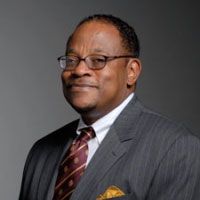
Forgetfulness as a Political Act
In my last blog, I reflected on my regret about the way that my classroom had become politicized in an election season in ways that I came to regret. Unexpectedly, I find myself once again politicizing my classroom; towards different ends this time. This time my act of radicalization is not so much about policy differences as about precluding a future which I would wish for none of my fellow citizens, much less my students.
As I awake each morning, nowadays, I do so with the lurking fear that if we, as a nation, are not careful the morning sun may arise on an America which my grandparents knew. Theirs was a world of authoritarian regimes and dictatorships here in the United States, not in far off lands. Jim Crow was quite simply a dictatorship; one based, albeit on race, but an authoritarian regime nonetheless. This personal history of my folks, along with the programs of genocide carried out against Native Americans, and the relocation of Japanese Americans to places just shades shy of concentration camps leaves me little illusion that it could not happen here. The it being the rise of an authoritarian regime which uses genocide and ethnic cleansing as a means to gain and maintain power. I am not at all convinced that we are not in such a moment. Nor, am I naïve enough to believe that large numbers of our fellow citizens would not welcome such a development believing foolishly that only they would be its beneficiaries. So, for me, the question each day is how do I, as a teacher, work to preclude this future in favor of one in which we all have a place?
I forget.
Having learned that to simply make a political argument runs the risk of creating a fissure in my classroom which precludes the imagining of a common future, I now do simple things to resist what I know to be the ways of authoritarianism. Writ large in this resistance is my willful forgetting of my student’s names. A forgetfulness which requires that each class session I must ask them to reintroduce themselves, where they are from, and in some form give voice to their hope and aspiration for our future. This is done in differing ways but the shape and intent remain stable. While I realize that I run the risk of seeming doddering and not attentive enough I am willing to accept these assessments. My willingness comes from my understanding of how authoritarian regimes co-opt people into ways of being which they would normally find unrecognizable. The most common way is to constrict the public square in such a way that people can only enter and leave it at the cost of the personal identity of themselves and others. Public identity is then mediated wholly on the terms of the regime. A thumbnail way to think of this is that individual selves are subsumed into a super-self that then robs them of their identity as individual persons, and most importantly as moral agents. It is this collapse of the public square that I seek to counter through the continual invitation for students to re-inscribe themselves in and on the public square which is our classroom. By the time we have “re-introduced” ourselves the room is so full of stories and our hopes there is little room for a super-self to emerge. In this, I attempt to cultivate the habits of being and mind for my students which intuitively resist invitations to lose themselves for the sake of a grand future for some of us at the expense of others of us.
A future which has no place for my neighbor is a future not worth having and one which demands acts of faithful resistance, no matter how small.
Leave a Reply